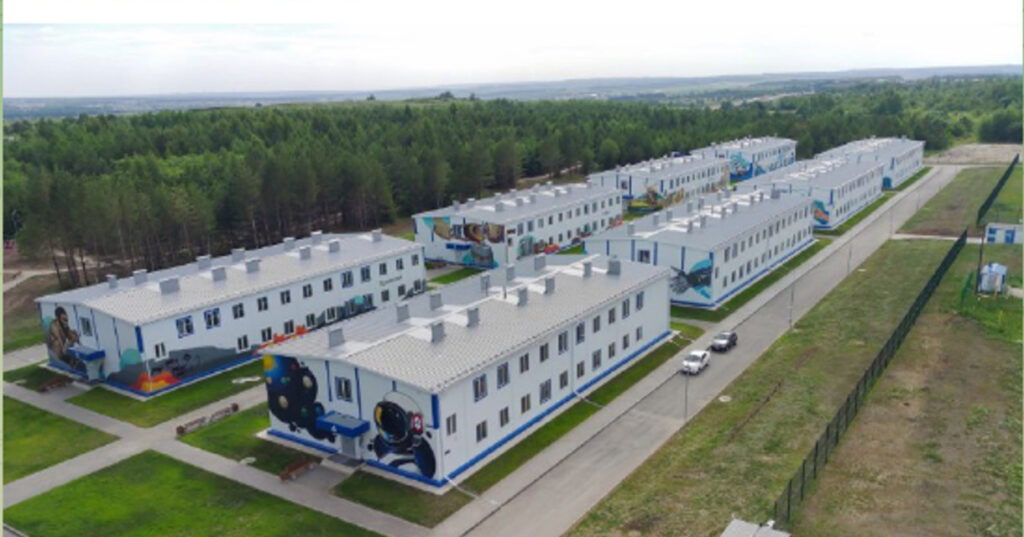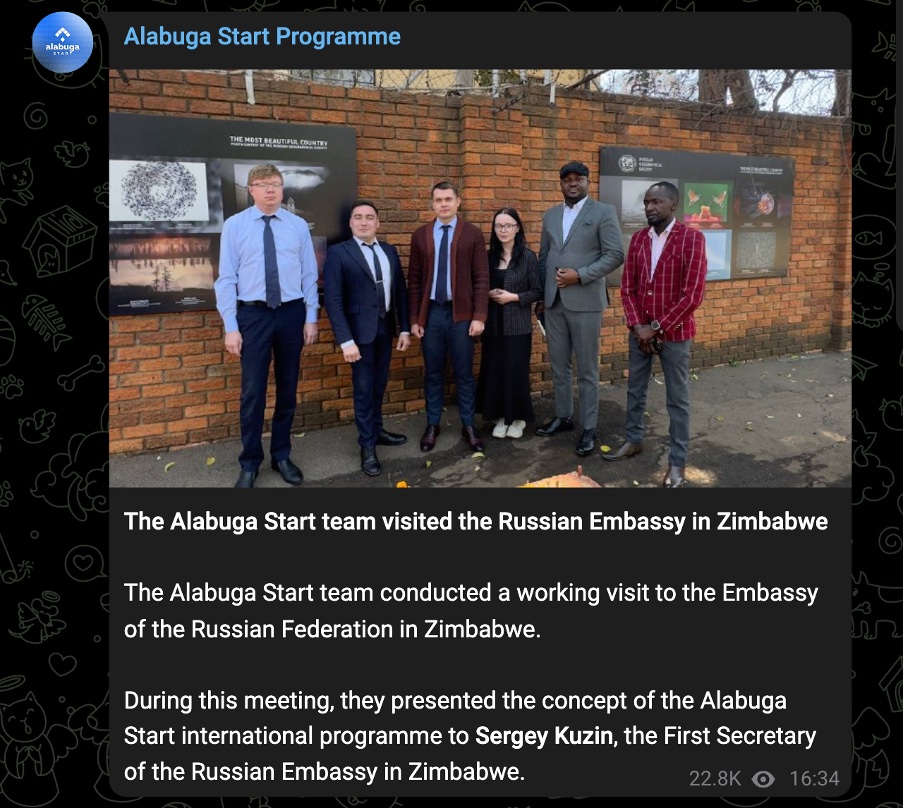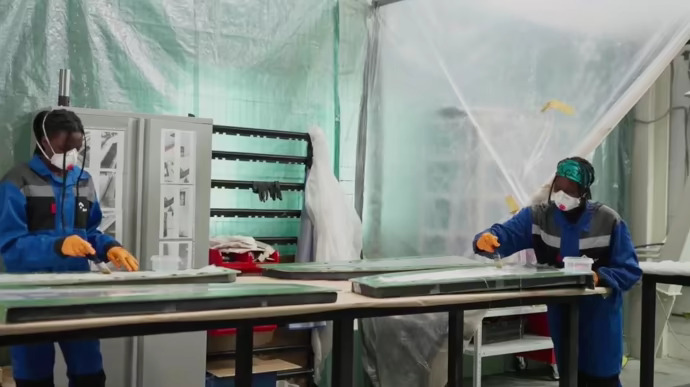By Tatenda Chitagu
HARARE-When Sylvester Moyo* heard his 21-year-old daughter, Lingani got a job in Russia, he felt over the moon.
It was a dream come true as the opportunity would help the family escape biting poverty, the 66-year-old pensioner was convinced. And this was understandable for him, given the high unemployment and harsh economic outlook in the country.
But Moyo and his wife’s joy was short-lived.
“We frequently communicated during her first months in Russia, but now she is hardly reachable and we only wait from her to call us as she says she will be busy and they are not allowed to use phones at her workplace, which she said is a security zone,” Moyo said from his base in Bulawayo, Zimbabwe’s second largest city.
“She hardly sends money here as she says she is not earning much and the last time we talked to her she said what she was promised is completely the opposite of what she is facing.
“So we told her to come back but she said she will have to raise money for air tickets for some months if she is allowed to leave,” Moyo added.
His daughter Lingani is among scores of Zimbabwean girls who went to Russia under the Alabuga Start Program, a scheme which has been turned into a drone manufacturing industry recruitment drive for Russia, a three-month investigation by HuMFOZ reveals.
“If that is the case, then she must come back than expose herself to danger,” Moyo said when asked about this sad reality for Zimbabweans and over 200 youthful African girls working at a factory that makes arms who went to Russia under the program.
HuMFOZ tracked down the parents of Lingani, one of the girls who was recruited under the Alabuga program.
Lingani was non-committal when reached to shed light on the program, but her parents confirmed our worst fears that they suspected she could be used in the war equipment manufacturing industry.
Sergy Kuzin, the first secretary of the Russian embassy in Zimbabwe, said he needed more time to verify the allegations when contacted for a comment since late last year. A follow up request yielded no response to the media enquiries concerning the issue, which many believe equals human trafficking.
The United Nations (UN) defines human trafficking as the act of recruiting, transporting, or harboring people for the purpose of exploitation. This crime can involve the use of force, fraud, or deception.
Zimbabwean Foreign Affairs Minister, Amon Murwira, was not picking calls when contacted for comment since late last year. He did not respond to questions texted to him on his phone.
So far, there have not been a combined public diplomatic response by African Governments or regional and continental bodies like the Southern African Development Community (SADC) and the African Union (AU).
A comment from the International Organization for Migration (IOM) will be added when the organization responds to questions send by this publication.

The Alabuga SEZ factories where the military drones are being assembled (Image sourced online)
Launched in 2023, the Alabuga Start Program on the surface seems to be a noble idea-offering employment and prospects of acquiring citizenship. On its website, it says ‘Alabuga start is an international programme designed for ambitious girls between 18-22 years.’
As a way to increase the recruitment, the program features testimonials of other girls already in Russia, showcasing their experiences as success stories.
But now Russia has been accused of coercing these young students into building drones for use in the Ukraine war, manufacturing Iranian-designed military drones, according to the Institute for Science and International Security (ISIS).
ISIS founder David Albright, a security expert who exposed the situation in a 2024 report, said several of the African participants’ home countries are unaware of the predicaments of their relatives who enrol for the Alabuga Program.
Alabuga Special Economic Zone is located about 1,000 kilometres east of Moscow in Russia’s southern Tatarstan region.
The Alabuga Start program used to also advertise on social media platforms, offering a free flight to Russia, but some have been mysteriously pulled down.
“Do you aspire to achieve career growth, work within a supportive team, and attain financial independence? Consider joining our Alabuga Start Programme in the Catering field
“In the first six months, participants will start as kitchen workers. After this initial period, those who demonstrate strong performance will have the opportunity to advance to waiter positions. Following another six months, successful ladies can be promoted to bartenders, and eventually, to chefs,” read some of the adverts.
In Zimbabwe, the Alabuga officials visited the Russian Embassy and had a meeting with consulate officials in August last year. They also requested to open an official representative office in Zimbabwe.

HuMFOZ also obtained a Zoom call record held with scores of African girls (names supplied) shortlisted for the program, among them one from Zimbabwe.
We also obtained photographs of some girls that had landed in Russia at the airport last year (names supplied)- some from South Africa, Nigeria, Mozambique, Tanzania, Uganda, Lesotho, Mali, among others.
The Alabuga officials also held meetings with several African countries representatives at the Russia-Africa Forum last year.

A screenshot from the Alabuga Telegram Channel
While it could have started off as a noble idea, the program has allegedly been hijacked to meet the growing demand for weapons in the wake of the Ukrainian war, according to experts. The girls reportedly work under harsh conditions and for long hours and low wages.
According to Military Africa, an online defense publication, this influx of African girls comes after the facility was once bombed by Ukraine.
In April last year, a drone strike by Ukraine targeted Alabuga SEZ and resulted in injuries to nine individuals.
RIA Novosti, a news agency in Russia, reported that citizens from nine countries, including Russia, Kyrgyzstan, Sri Lanka, Zimbabwe, Rwanda, Republic of Congo, Kenya, Nigeria, and South Sudan, were among the injured. The attack has also drawn attention to the hundreds of students reportedly assembling Shahed drones at the Alabuga Polytechnic.
The Wall Street Journal reported last year that the plant in Tatarstan, which was attacked by Ukrainian drones last year, is supposed to produce 6,000 Shahed attack drones annually.
In a 2024 analysis, the Robert Lansing Institute for Global Threats and Democracies Studies, a non-partisan, non-profit public policy research organization, charged Russia with exploiting “not only Africa’s natural resources but also its people — victims of economic crises — through deception and restrictions on their freedom.”
“The exploitation of African women in this manner aligns with previous findings about Russia’s colonial policies in Africa. Russia’s actions are filling labour shortages caused by the mobilization of men for the war in Ukraine, a war also marked by colonial motivations.”
Further investigations by Russian online media investigative platforms suggest participants are under strict curfew and will be forbidden from bringing phones into the factory. They also risk being fined heavily if they disclose what happens at the factory.
This leaves Zimbabweans like Lingani at the mercy of their hosts, and also worries their parents and guardians back home.
*Names altered to conceal the identity of the victims for fear of retribution and further victimization.
Banner Image: Participants in the Alabuga Start program (picture courtesy of WSJ)

